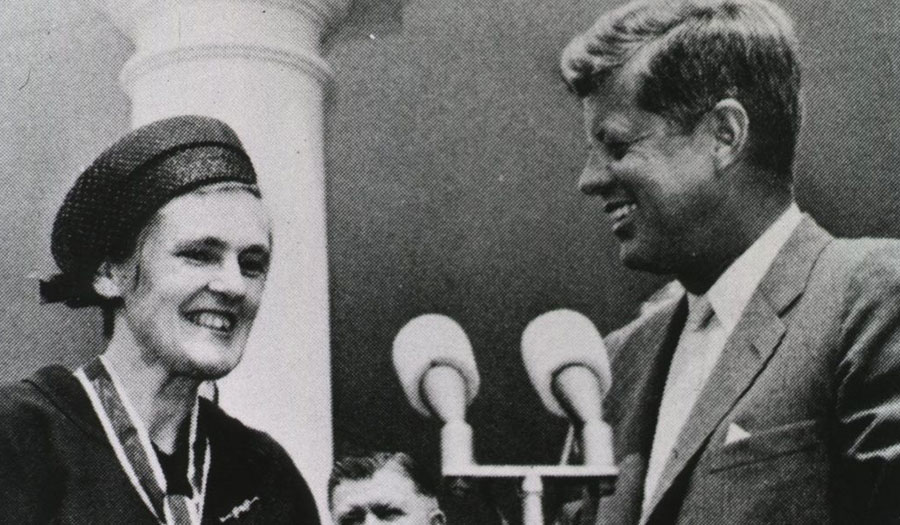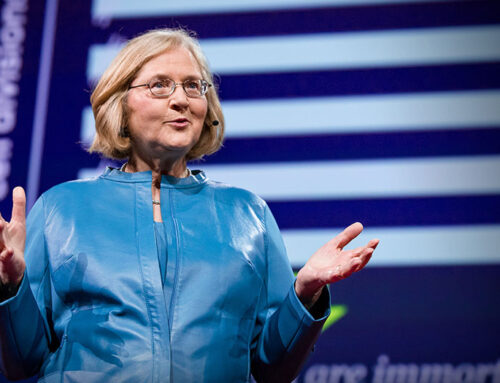Born in Canada in 1914, pharmacologist Frances Oldham Kelsey’s bold stance against inadequate drug testing saved countless newborns in the US from the perils of thalidomide.
Frances Oldham was born in British Colombia, Canada in 1914. She graduated from McGill University with both a B.Sc. and a M.Sc. in pharmacology.
Encouraged by one of her professors, she wrote to the University of Chicago which was starting up a new pharmacology department, asking for a position doing graduate work. Obviously unaware of spelling conventions with respect to Francis and Frances, they presumed that Frances was a man and offered her the position, which she accepted, starting work in 1936. She received a Ph.D. in pharmacology in 1938.
Upon completing her Ph.D., she joined the University of Chicago faculty, looking for a synthetic cure for malaria. As a result of these studies, Oldham learned that some drugs are able to pass through the placental barrier. While at the University of Chicago, she met fellow faculty member Dr. Fremont Kelsey, whom she married in 1943. While on the faculty at the University of Chicago, she was awarded her M.D. in 1950.
In 1960, Frances was hired by the FDA in Washington, D.C. At that time, she was one of only seven full-time and four young part-time physicians reviewing drugs for the FDA.
On her first month on the job, was to review an application by Richardson Merrell for the drug thalidomide, marketed as a sedative for pregnant women experiencing morning sickness.
Even though it had already been approved in Canada and more than 20 European and African countries (including Australia), she withheld approval for the drug and requested further studies as the application was “extremely inadequate,”
Dr. Kelsey resisted pressure from thalidomide’s manufacturer to quickly approve the drug, which was already being widely prescribed in Europe. When she asked the manufacturer to share research on how their drug affected human patients, they refused. Instead they complained to her superiors for holding up the approval. Over the next year, the manufacturer would resubmit its application to sell thalidomide six times. Each time, Dr. Kelsey asked for more research. Each time, they refused.
As a result of her insistence on further safety testing, the drug was never approved in the United States, saving an untold number of children from its devastating effects.
In Germany alone, between 5,000 and 7,000 children were born without limbs or with flipper-like limbs, of which only 40% survived, and numerous cases emerged in other countries, including Australia. By 1962, the drug had been removed from sale.
After a huge public outcry for better drug testing, Dr. Kelsey was selected to help write the rules governing clinical trials which have since been adopted throughout the world. In 1962, President John F. Kennedy awarded her the President’s Award for Distinguished Federal Civilian Service.
In 2005, Dr. Kelsey retired from the FDA at the age of 90 after 45 years of service and they established the Dr. Frances O. Kelsey Award to “celebrate courage and scientific decision-making” in her honour. She died in Ontario in 2015 at the age of 101.




